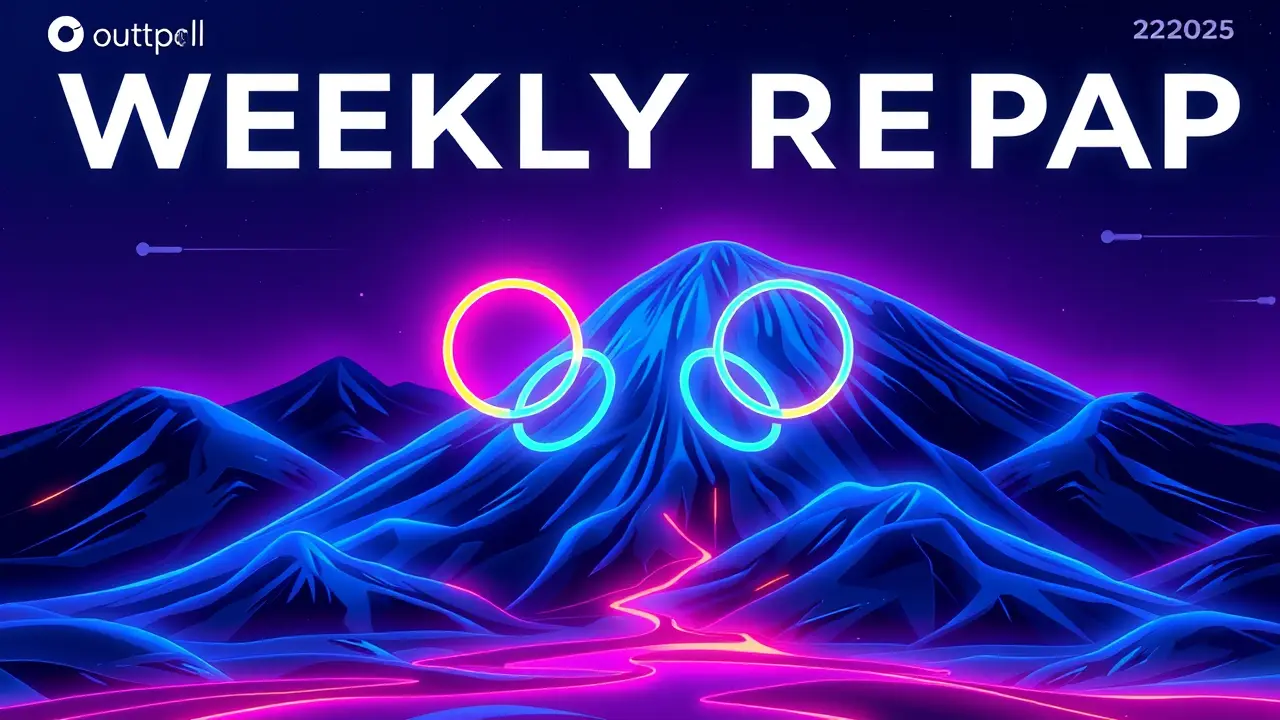
AI
Outpoll Weekly Recap: AI (October 29 – November 5, 2025)
DA
Daniel Reed
3 hours ago7 min read
This week felt like a significant inflection point, not just in raw capability but in the tangible application of large language models. The open-source community, in particular, delivered a one-two punch that has the entire research ecosystem buzzing.First, the release of 'Aurora-7B', a surprisingly dense 7-billion parameter model that outperforms several 70B-class predecessors on specialized reasoning benchmarks, has forced a re-evaluation of scaling laws. It's not merely about parameter count anymore; it's about architectural elegance and training data curation, a shift reminiscent of the transition from brute-force chess engines to AlphaZero's intuitive play.This was complemented by a landmark paper from a collective of European AI labs detailing a novel fine-tuning method that dramatically reduces 'catastrophic forgetting', a long-standing bugbear that has limited how effectively pre-trained models can be adapted to new, specialized domains without losing their general knowledge. The implications for enterprise adoption are profound, potentially allowing a single foundational model to be safely branched into legal, medical, and creative offshoots.On the policy front, the long-anticipated draft of the US-UK Bilateral Agreement on AI Safety Standards was published, and its focus on joint testing and evaluation of frontier models signals a move towards a coordinated, if cautious, Western approach to governance. This stands in stark contrast to the more fragmented EU landscape, where individual member states are beginning to enact their own supplementary regulations, creating a potential compliance labyrinth.Meanwhile, prediction markets saw sharp volatility, with the probability of a major AI lab announcing a true multimodal agent (one that can seamlessly reason across text, image, and audio within a single, integrated workflow) by Q2 2026 spiking from 35% to 58% following a cryptic tweet from a well-known research director. The underlying sentiment is clear: the race is no longer just about who has the biggest model, but who can most effectively bridge the gap between narrow expertise and general, actionable intelligence. The coming weeks will likely see a scramble to integrate these new open-source advancements, pushing the entire field another step closer to the flexible, resilient systems that have long been the theoretical goal of AGI research.
#Weekly recap
Stay Informed. Act Smarter.
Get weekly highlights, major headlines, and expert insights — then put your knowledge to work in our live prediction markets.
Related News
© 2025 Outpoll Service LTD. All rights reserved.














